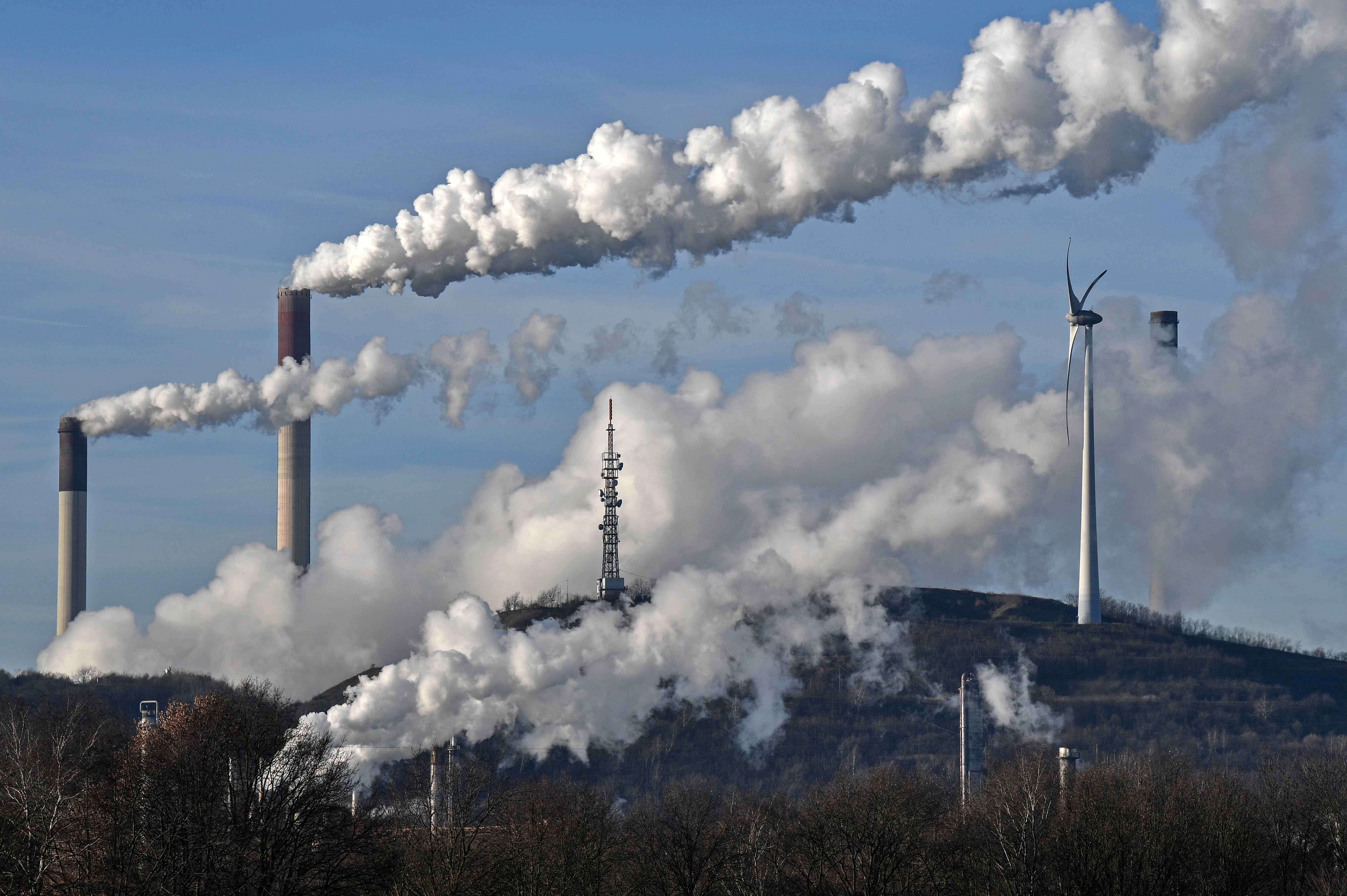Joe Biden’s last big chance to tackle the climate crisis is coming
If we want to see companies take action against climate change, disclosing the risks they face will be important


Your support helps us to tell the story
From reproductive rights to climate change to Big Tech, The Independent is on the ground when the story is developing. Whether it's investigating the financials of Elon Musk's pro-Trump PAC or producing our latest documentary, 'The A Word', which shines a light on the American women fighting for reproductive rights, we know how important it is to parse out the facts from the messaging.
At such a critical moment in US history, we need reporters on the ground. Your donation allows us to keep sending journalists to speak to both sides of the story.
The Independent is trusted by Americans across the entire political spectrum. And unlike many other quality news outlets, we choose not to lock Americans out of our reporting and analysis with paywalls. We believe quality journalism should be available to everyone, paid for by those who can afford it.
Your support makes all the difference.President Joe Biden’s climate agenda may take a final stand next week when public companies will be asked to disclose their greenhouse gas emissions.
The Securities and Exchange Commission – the country’s top financial regulator – is set to propose rules on what companies must disclose about the climate risks for them and their shareholders. Failure to pass the rules, which will almost certainly face legal challenge, would be the final nail in the coffin of Biden’s climate plans. And it comes just months before the midterm elections, in which the President is widely expected to lose Democratic control of Congress.
The regulator is expected to require public companies to disclose their emissions as well as risks they face from global warming, such floods, fires or rising seas. It would put the US largely in line with many European countries who already have such mandates. It would also take some confusion out of the hodge-podge of rules in the growing $17 trillion ESG (environmental, social and governance) investment market.
This could be a landmark moment. Investors and campaigners have been waiting more than a year for the SEC to announce the rules. Its chair Gary Gensler has twice delayed them, and come under enormous pressure from progressive Democrats such as Sen. Elizabeth Warren to move forward. Part of the delay is because Gensler is believed to see real legal risk in the SEC extending its mandate for disclosure too far. The Administrative Procedure Act allows courts to vacate SEC rules that they think overreach, or are deemed political or arbitrary.
One particular thing climate advocates want – but which might be too much for the SEC – is for it to require Phase 3 emissions. These are the indirect emissions that come from a company’s supply chain or a bank’s portfolio. Without them the new rules will be criticised as too soft. If they are included, it could be overturned. In the current Washington environment, the new rule will certainly be challenged.
SEC by-laws require a 60-day comment period after it unveils the rule, after which the five commissioners can vote on it. Currently, there are three Democrats, one Republican, and one vacant seat on the commission. Commissioner Allison Lee, an outspoken proponent of climate regulation who ran the SEC before Gary Gensler was confirmed, announced last week she would resign when her term ends in June. It will be another blow for Biden’s agenda.
To keep up to speed with all the latest opinions and comment sign up to our free weekly Voices newsletter by clicking here
All of this comes against the backdrop of the Russian invasion of Ukraine, and the surge in oil and gas prices worldwide, which have become a convenient tool for Republicans and Democrat senator Joe Manchin to use against any new climate rules. Manchin torpedoed Biden’s Build Back Better plan, which had more than $500 billion in new climate spending. He also torpedoed the nomination of Sarah Bloom Raskin to the Federal Reserve board last week – as supervisor of Wall Street – because of her pro-climate views.
Moreover, the president faces a Supreme Court ruling this summer on whether the Environmental Protection Agency has the authority to regulate climate change practices. This is the political environment that Joe Biden faces.
It’s unlikely this move by the SEC will save the Democrats during the midterm elections, or more importantly, quickly move the climate needle at the world’s largest polluter.
But for the growing business of measuring climate risk and investing in clean energy technology, it is a vital step forward. If we want to see companies take action against climate change, disclosing the risks they face will be important. Let’s hope Joe Biden’s last stand on the climate agenda withstands the assault it is likely to face.
Join our commenting forum
Join thought-provoking conversations, follow other Independent readers and see their replies
Comments